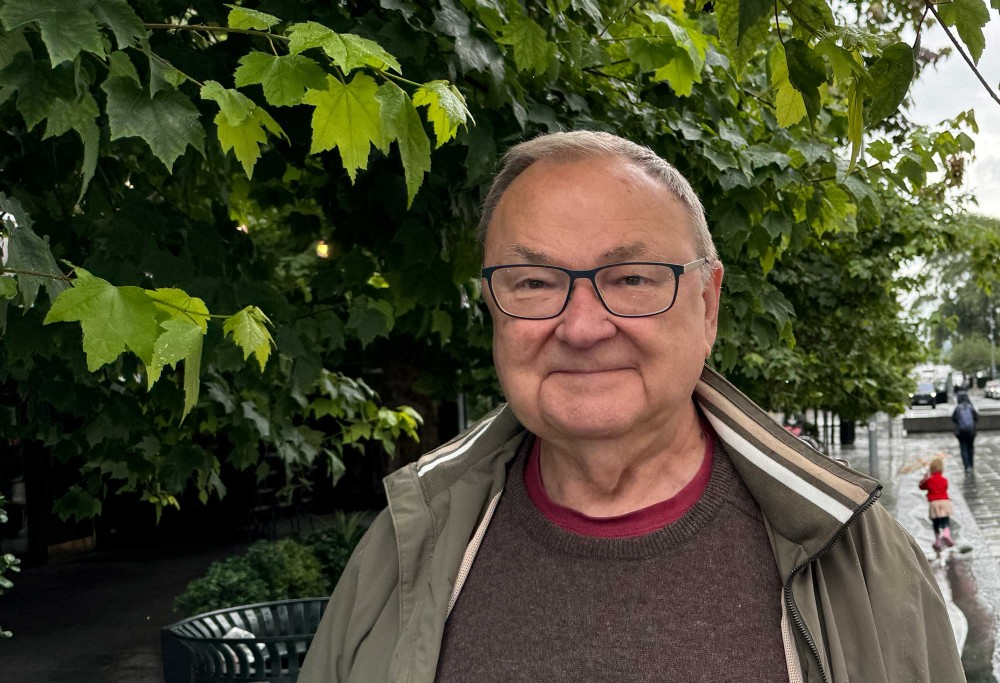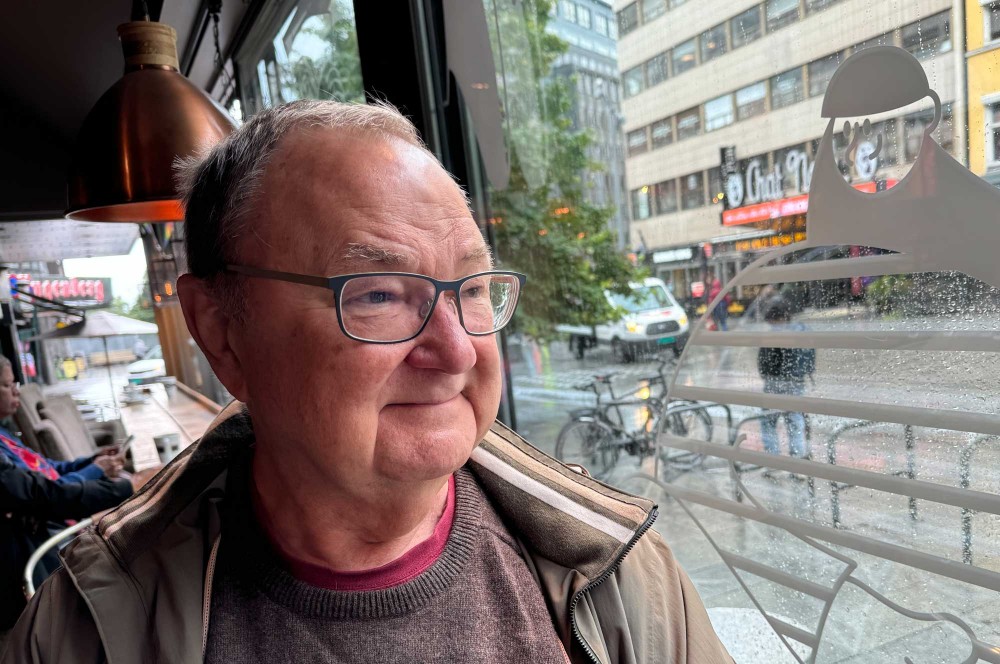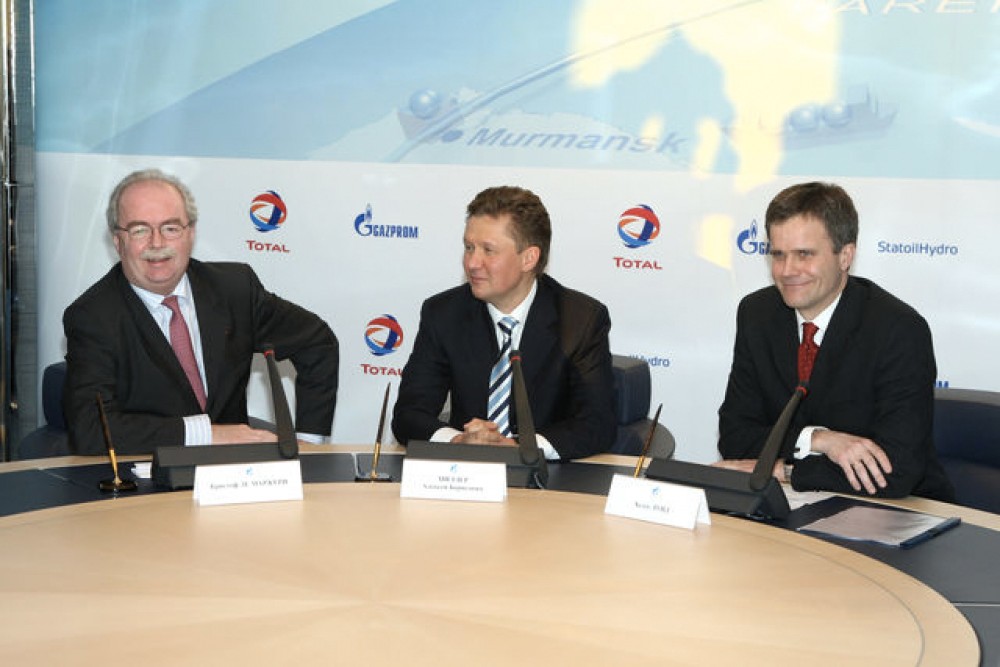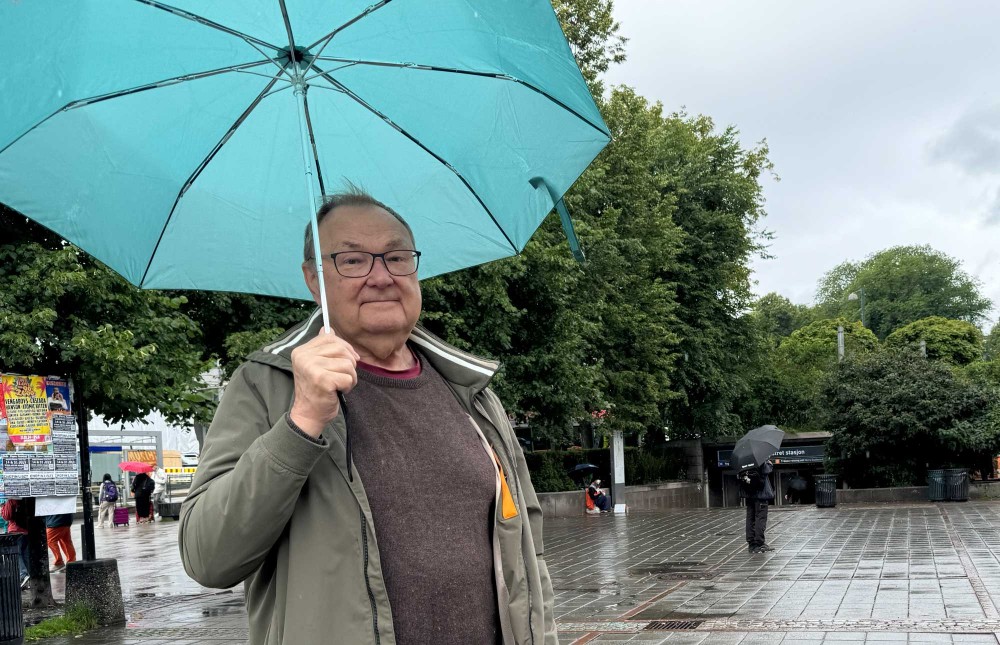Moscow’s Arctic policy is based on lies and corruption, says Russian energy expert in exile

Mikhail Krutikhin argues that several of the major industrial projects currently under development in the Russian Arctic are nothing but a scam and part of a grand corruption scheme.
“It is all fake.”
Mikhail Krutikhin vividly describes how state-owned oil company Rosneft is operating along the desolate Russian Arctic coast.
Putin has big geopolitical ambitions in the Arctic, but behind the major energy projects in the region is a great deceit, the renown energy analyst explains.
According to Krutikhin, Rosneft never found major volumes of oil in the Kara Sea, and the Vostok Oil project in the far northern Taymyr Peninsula will never materialise as planned.
“It is a complete fake. The whole project is a fake. And I have the documents that prove it.”
The state oil company in 2014 said it made a major discovery in a well drilled together with U.S company ExxonMobil, and company leader Igor Sechin later compared the resources of the Kara Sea with Saudi Arabia. Few years later, Sechin announced that Rosneft’s Vostok Oil project in the Taymyr Peninsula would become “one of the biggest projects in the Arctic ever” and that more than 100 million tons of oil annually would be shipped out from a project terminal from 2030.
“Everything is a fake. Rosneft is a fake company,” Krutikhin reiterates and explains that it is driven by a corrupt scheme developed together with the Russian government.

‘Foreign agent’
Mikhail Krutikhin has studied the Russian oil and gas industry for decades and is an outspoken critic of the Kremlin. In 2023 he was added to the Russian Justice Ministry’s list of so-called foreign agents for his expressed “opposition to the special military operation.”
He left Russia and now resides in Norway.
In the early 1990s, Krutikhin co-founded the RusEnergy consultancy company and later cooperated closely with several Norwegian companies.
He is more than 70 years of age, but he walks youthfully down a street in central Oslo, his new hometown.
“I am trying to learn Norwegian,” he says to the Barents Observer. From before, he is great professional in languages and has worked several years as journalist and translator. In the late 1980s, he served as correspondent for TASS in Iran. Now, he is about to publish a new book about the country and its relations with Russia.
Lost opportunities
According to Krutikhin, Norway and Russia could have been great energy partners in the Arctic. Norwegian companies fought hard for a partnership with Gazprom in the Shtokman project and StatoilHydro, the company that is now named Equinor, in 2007 won a stake in the so-called Shtokman Development AG.
“It was a period with wonderful opportunities for joint cooperation,” Krutikhin says. Although he was never fully convinced about Shtokman and could not really understand why the Norwegians celebrated when they won the project stake.
There were major technological challenges. The Shtokman resources are located in the Barents Sea, 650 km from the mainland, and the project operators had to find a way to bring workers to the offshore field installation and to generate energy.

But even more serious were problems connected with Russian politics and corruption, Krutikhin says.
“When Mr. Putin came to power, he started a very slow policy of discrimination of foreign operators in Russia, and he soon banned foreign operators in large oil upstream projects.”
The Russian continental shelf became the exclusive domain of the Kremlin’s two main energy companies, Gazprom and Rosneft.
Corruption
Krutikhin recalls how Norwegian company representatives expressed concern about the Russian tax system, which reportedly made it almost impossible to get any profit from the project. Later, the same representatives also admitted that corruption was a major troublesome issue.
“I basically think that the project was so complicated and expensive that there was no room for increased budgets for anything. And so the Russian officials at Gazprom were not interested. They could not steal as much as they steal from other projects. And the existence of Norwegian and French partners that could control the cash flows was a very big obstacle to their way to their project management.”
The Shtokman project was to deliver major volumes of LNG to the US market. As the Americans started massive development of shale gas, the project was ultimately put on the shelf.
Were the Norwegians naive? Were they cheated?
“No, no, I don’t think so. At that time, we were consulting other investors too, not only Norwegian investors. They were not naive.”
The Norwegians’ zero-tolerance for corruption clashed with Russian practice, he argues.
“It was absolutely impossible, for example, at Christmas time, to make some gifts to Russian officials. In the ministry, Gazprom, Rosneft, or anywhere else. It was absolutely impossible. It was against the policy of the company. The Chinese, the Japanese, American companies, they made presents. The Norwegian company couldn’t do that.”

Foreigners out
If the Shtokman field actually had been developed, the Norwegians would ultimately have been pushed out of the project, the energy expert believes.
“I’m very closely following politics and the situation in Russia, and see the destiny of other large projects with foreign companies. For example, on Sakhalin and the fate of the consortiums Sakhalin-1 and Sakhalin-2. In the Sakhalin-2, Gazprom exerted administrative pressure to get the controlling stake. And now they are pushing Shell out of that project. In Sakhalin-1, it was ExxonMobil that did all the things. They drilled fantastic technological breakthrough wells 20 kilometers from the shore. Now, the Russian government is pushing ExxonMobil out of that project.”
Will it ever be possible to do international and Norwegian-Russian energy cooperation in the Arctic?
“Unless the political situation changes, I don’t think it is possible. So, we should be waiting for a dramatic change in the Russian political system. Because since 2000, when Putin came to power, it is getting worse, worse and worse.”
According to Krutikhin, a main geopolitical objective for Putin is to establish Russian control over the Arctic coast, Arctic waters, up to the North Pole, and to claim everything that he can claim in the area.
LNG and geopolitics
Natural gas company Novatek is assisting Putin in the region, Krutikhin argues.
“Gennady Timchenko, he is one of the owners of Novatek, and he has good contact with Putin. He came to him once and said, “You know, we see that this is the goal, to re-establish control over the Arctic area.”
“We can do that,” Timchenko said. We can attract foreign investors, foreign technologists. We can build LNG projects all along the coast.”
Novatek was generously rewarded for the plans. The National Welfare Fund provided funding for acquisition of LNG carriers, icebreakers, dredging the bottom of the sea and more.
And not the least; the company got a 12 year tax break.
In 2017, Novatek launched its Yamal LNG project, and proceeded with the development of its next giga-project, the Arctic LNG 2.
“So, this is geopolitics mixed with the ideas of Novatek. And they proved with the first project [Yamal LNG] that they can do it. And Putin was very enthusiastic. They proved that they could produce. Yes, and the project is very successful.”

LNG collapse
What will happen with these projects following the introduction of international sanctions?
“I think that Yamal LNG has some chances to continue. Because the gas belongs to the French and the Chinese, to private companies. The Chinese have contracts on 29.9% of the gas.”
The sanctions against the Russian LNG industry do not really affect the Russian war machine, Krutikhin argues.
“When the Americans and the EU started to introduce sanctions against Russian LNG, the idea was to decrease the flow of cash into the Russian military budget. But the money does not go into the Russian budget at all. It’s a gift from Mr. Putin to the international consortium. For 12 years, until they reach some sort of payback.
Krutikhin says that “the Americans are determined to kill the Russian LNG industry,” and the Arctic LNG 2 is in big trouble.
“I think it cannot go ahead at all,” he says.
So they risk that all of the installations that they have built will never be used?
“Yes, there is such a risk.”
Depleted resources
If the geopolitical situation continues like today, what will be the situation for the Russian oil and gas industry in 10 years time?
“Right now I think it depends on the companies, not on the government. Because, in terms of oil, it is the companies that decide on the size of production, on new projects, old projects, discoveries, where to invest and so on. When the government today tells the companies to follow the instructions from OPEC, no company in Russia obeys those orders. They do what they want to do with the production volumes.”
“Secondly, they are trying to exploit as much as possible the brownfield projects, which have been in production since two decades or three decades ago. They are drilling new wells, they are pumping more water. And now we see that, for example, in Khanty-Mansiysk district and in Samotlor that they produce water with some 5% of oil in it. I saw the samples, it’s just a small film of oil.“
According to Krutikhin, Russia will soon have very limited commercially recoverable oil resources.
I expect that the limit when there is no more commercially recoverable oil will occur maybe eight or nine years from now.”
“They are drilling more and more, and the production of that small amount of oil is becoming more and more expensive. I expect that the limit when there is no more commercially recoverable oil will occur maybe eight or nine years from now.”
“It’s a critical point, because there are no huge reserves in Russia. They are sucking the last drops from old oil fields. And the gas — you cannot produce gas without markets. There is plenty of gas, but Putin has killed the gas export industry in Russia to Europe without any alternatives. The Chinese are not going to replace it.
Future without Putin
Do you have any hopes for Russia?
“As long as the current government is in place and until they somehow finish the war, I have no hope. For the economy, for creating wealth, it’s all about globalization. You cannot build an airplane without globalization. You cannot build a freezer without international cooperation.”
What are your thoughts about the future of Norwegian-Russian relations?
“The main problem is the ideology and attitude of the Russian government. I think Norway is prepared. As soon as there is a chance to establish some sort of constructive relations and to cooperate in oil and gas business, energy business and economics, the Norwegians are ready to act.”
Located in Kirkenes, Norway, just a few kilometres from the borders to Russia and Finland, the Barents Observer is dedicated to cross-border journalism in Scandinavia, Russia and the wider Arctic.
As a non-profit stock company that is fully owned by its reporters, its editorial decisions are free of regional, national or private-sector influence. It has been a partner to ABJ and its predecessors since 2016.